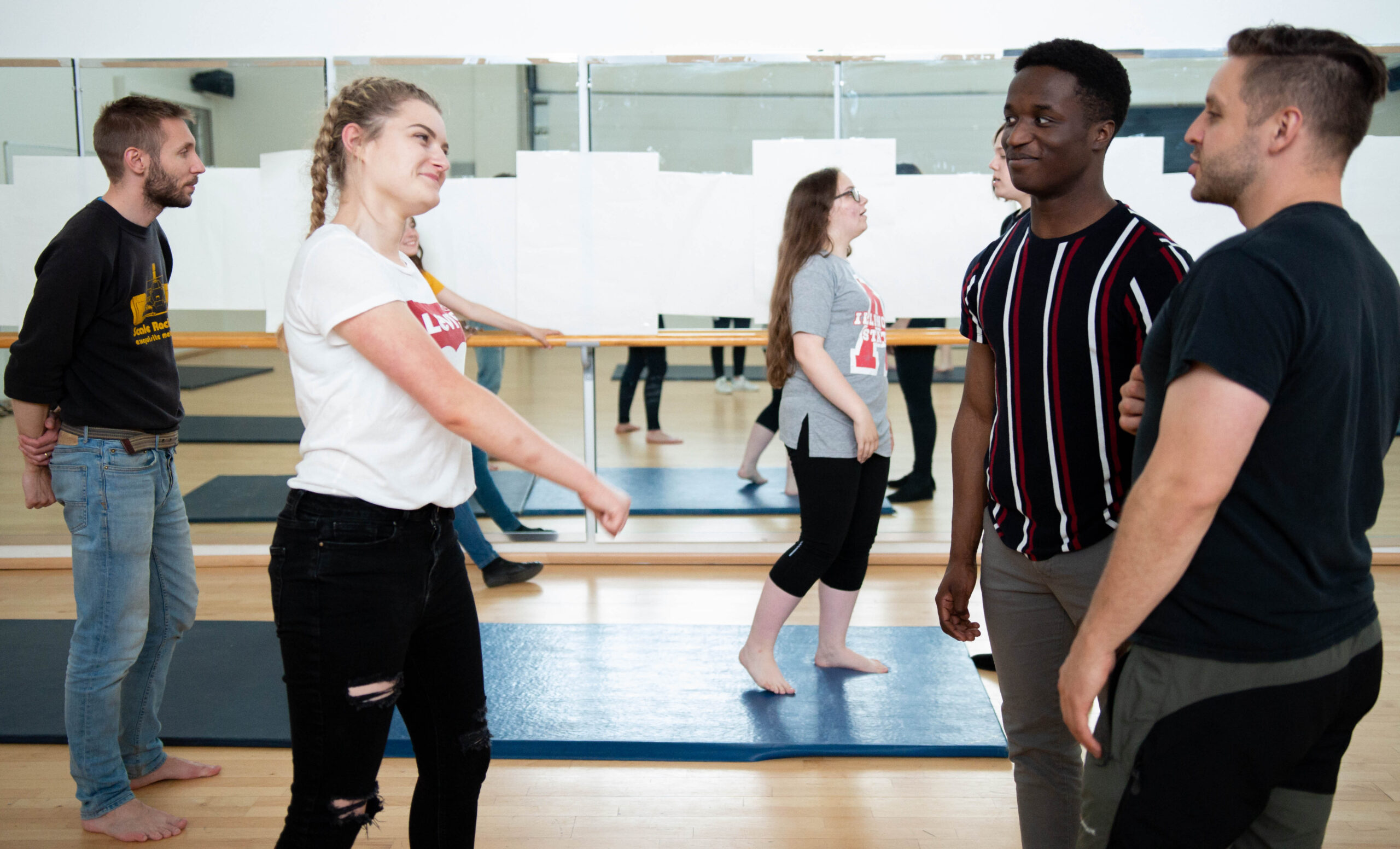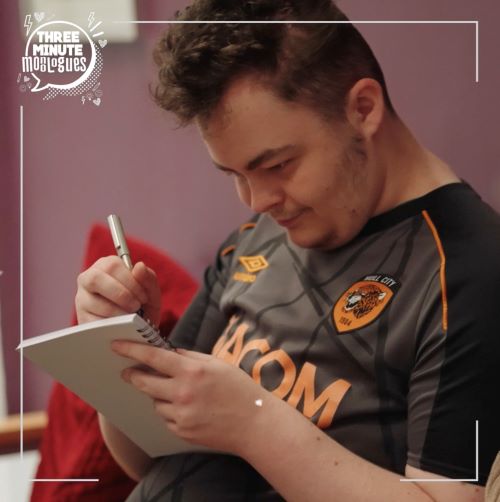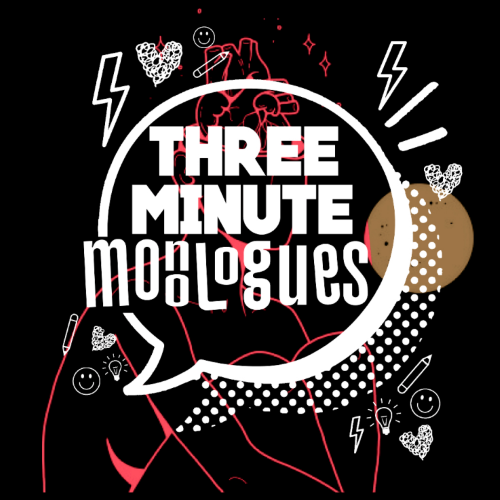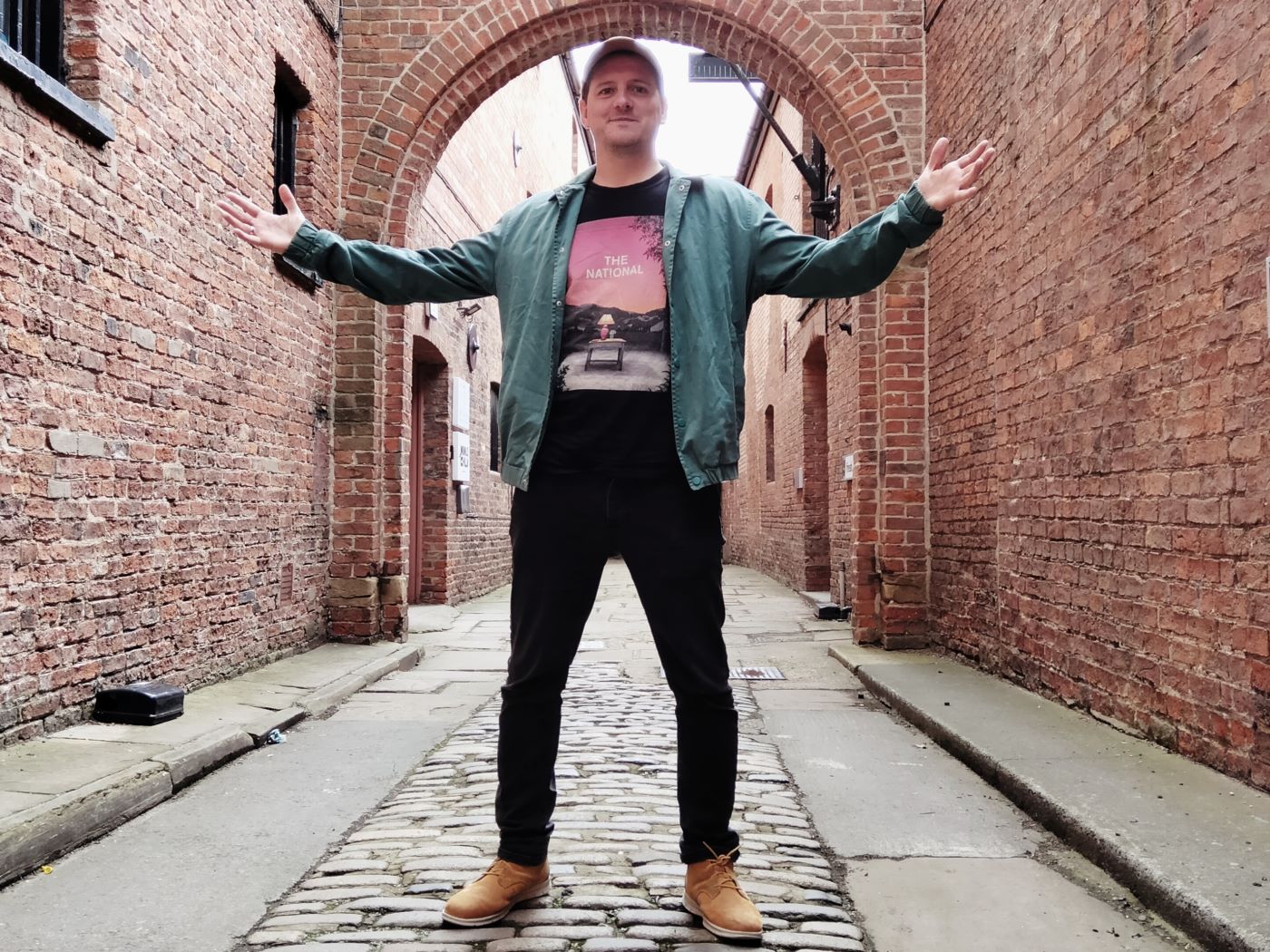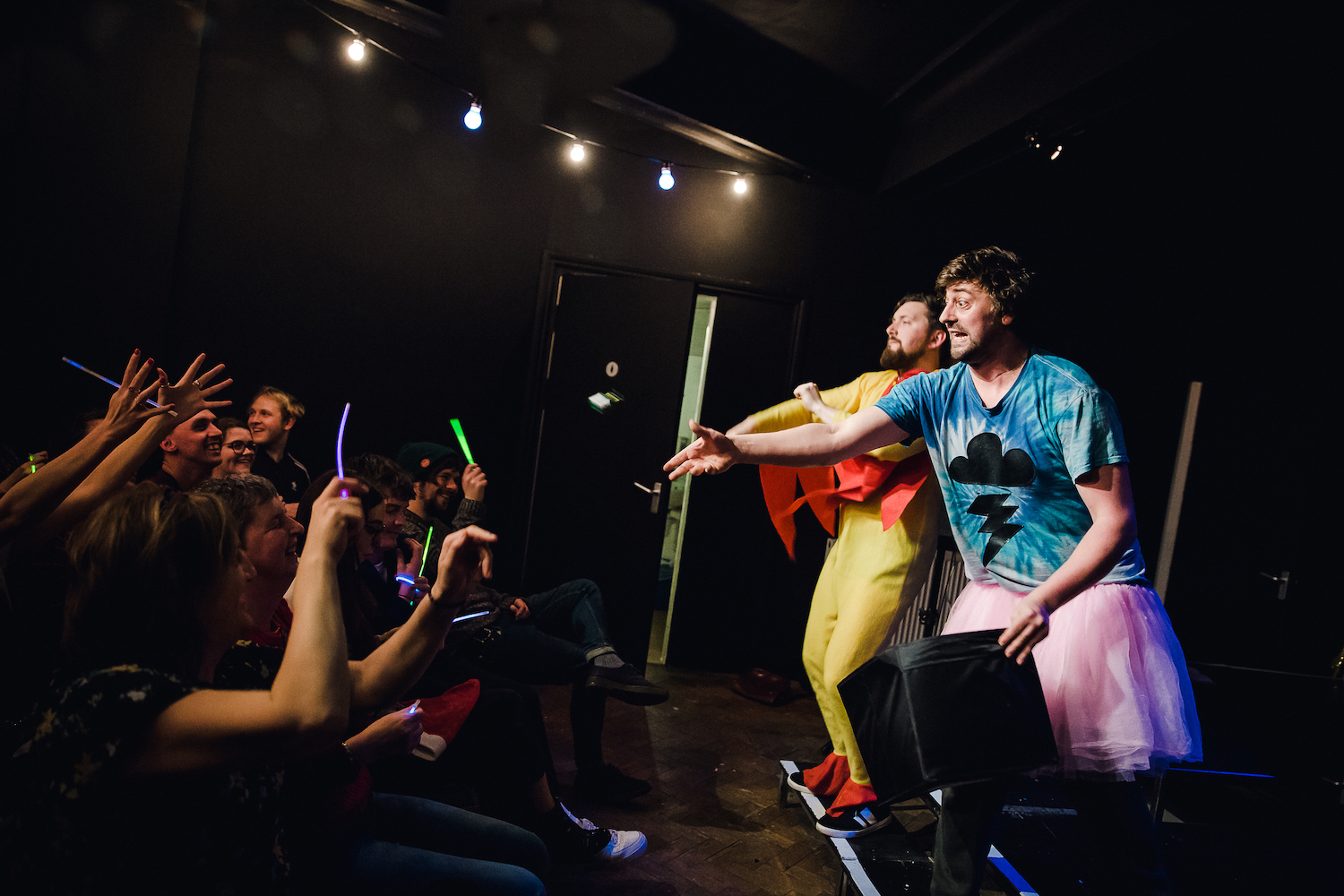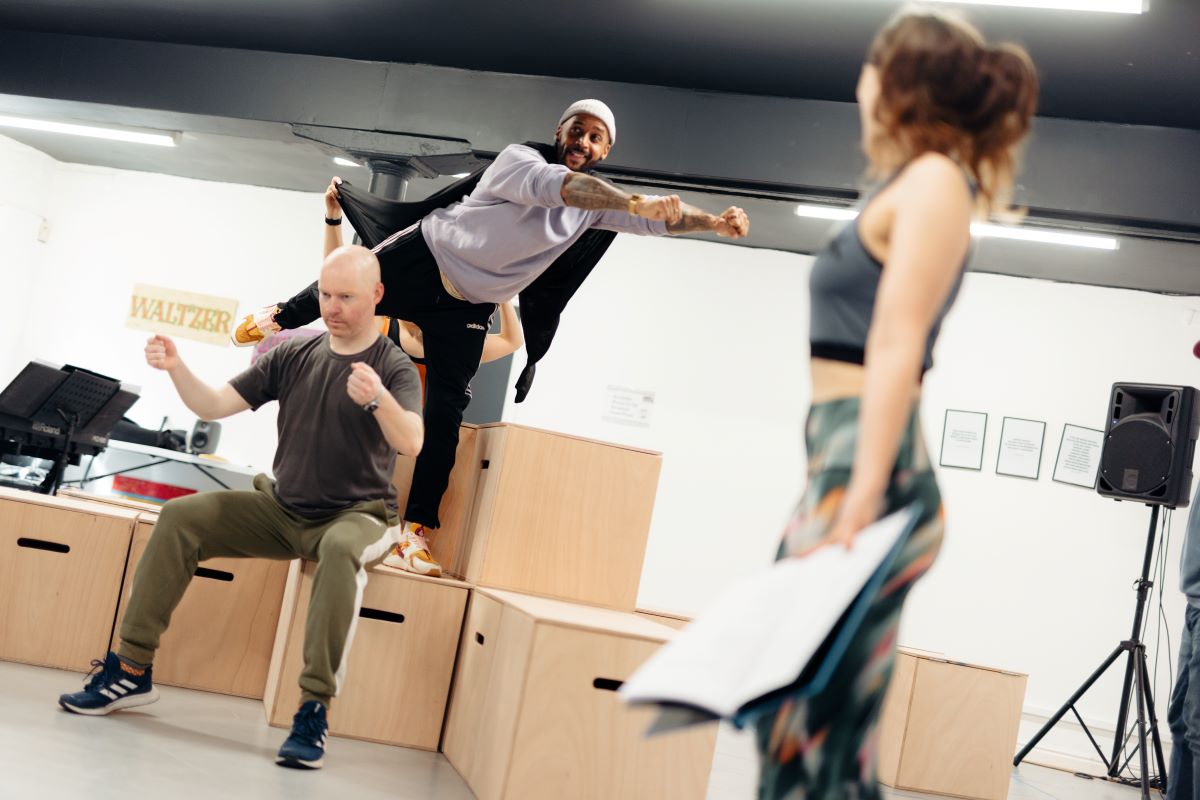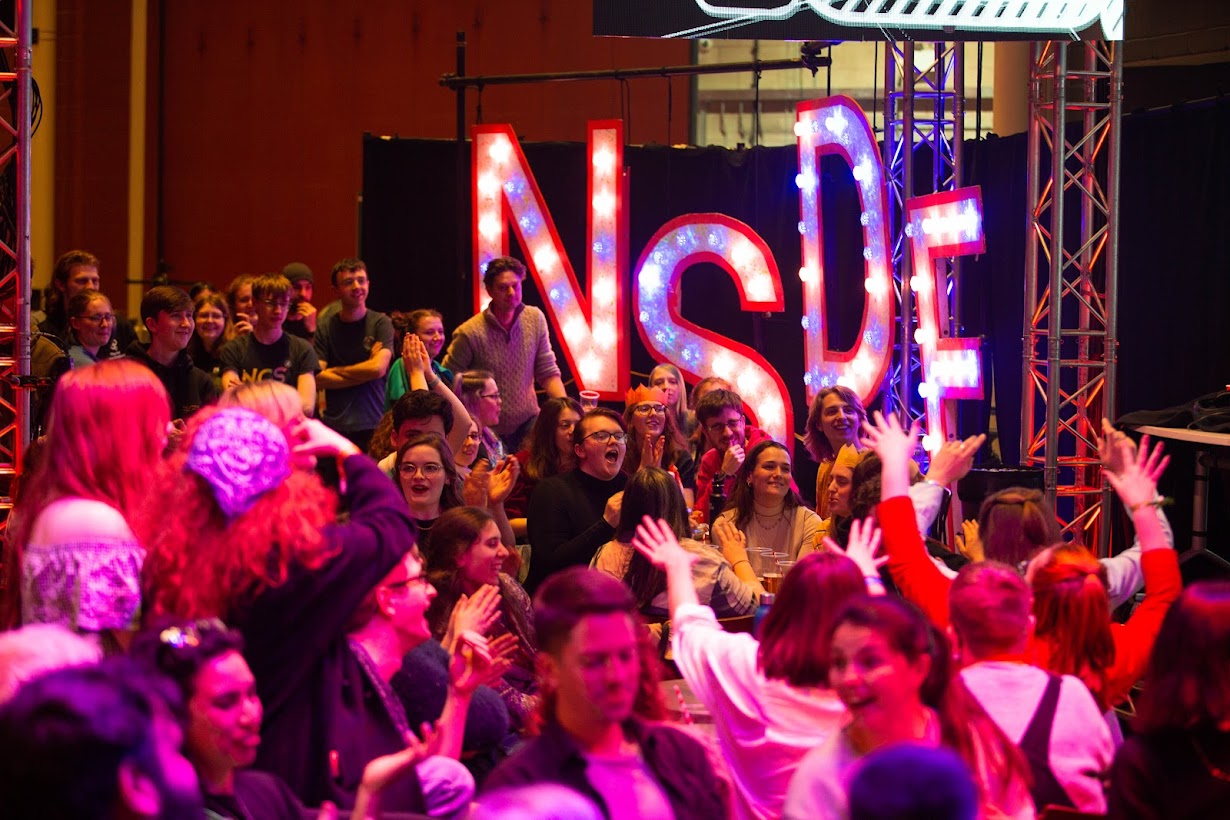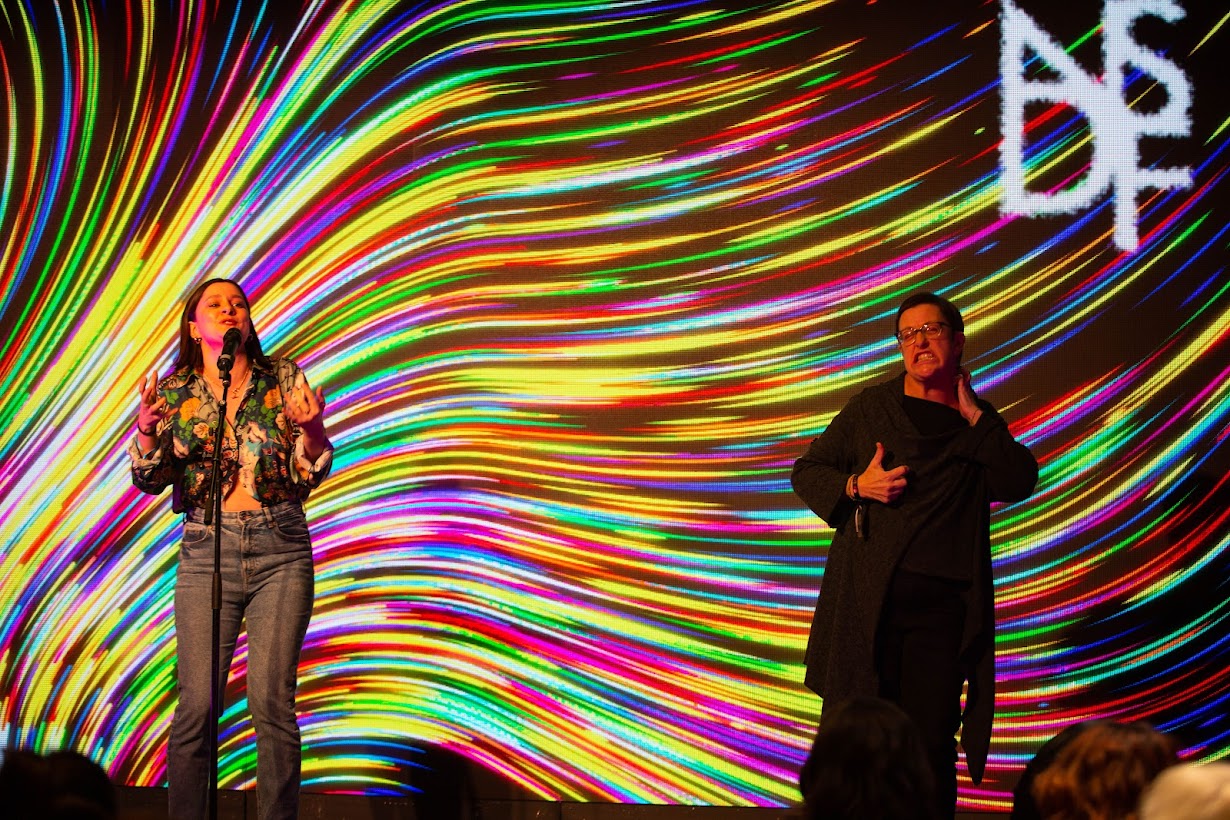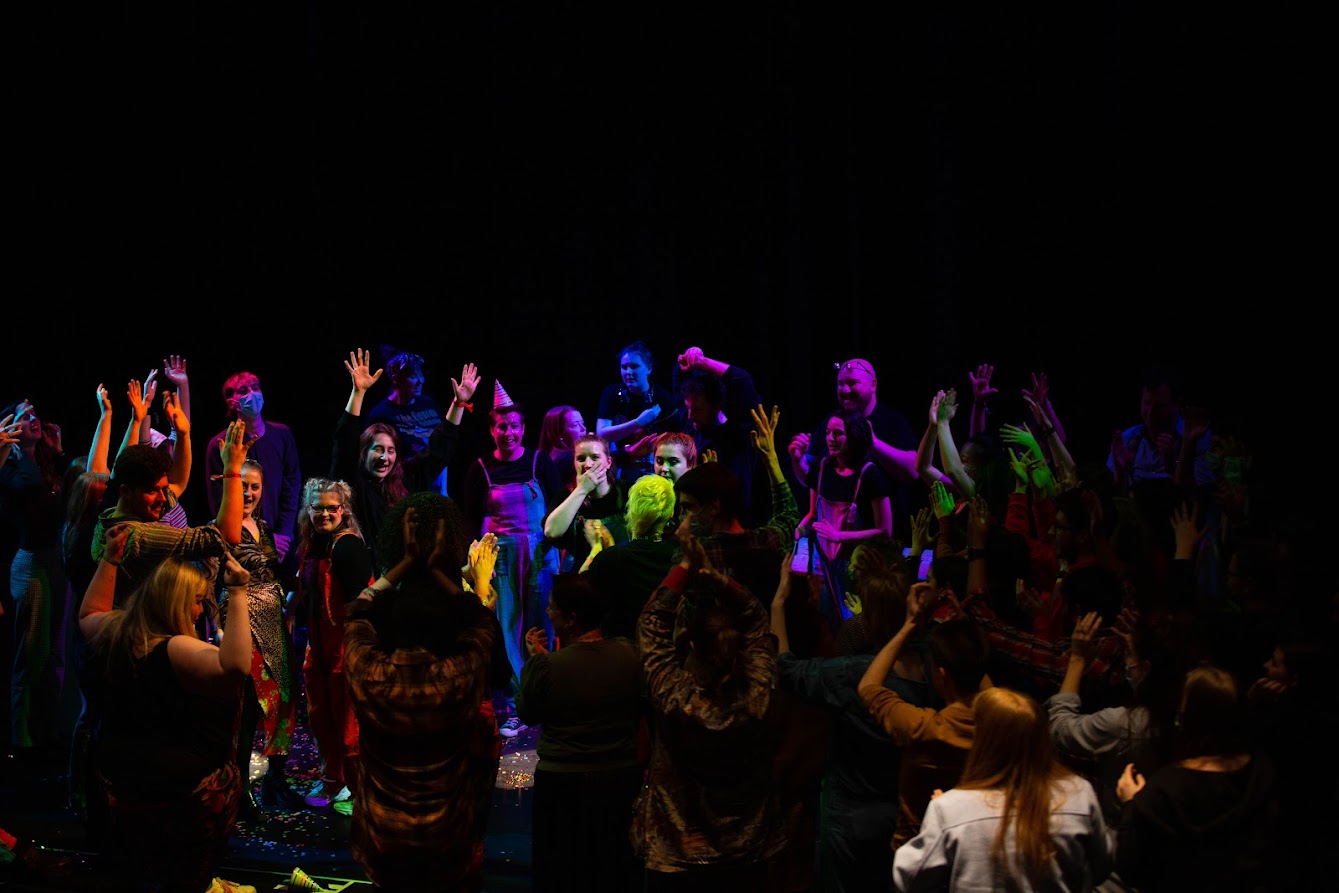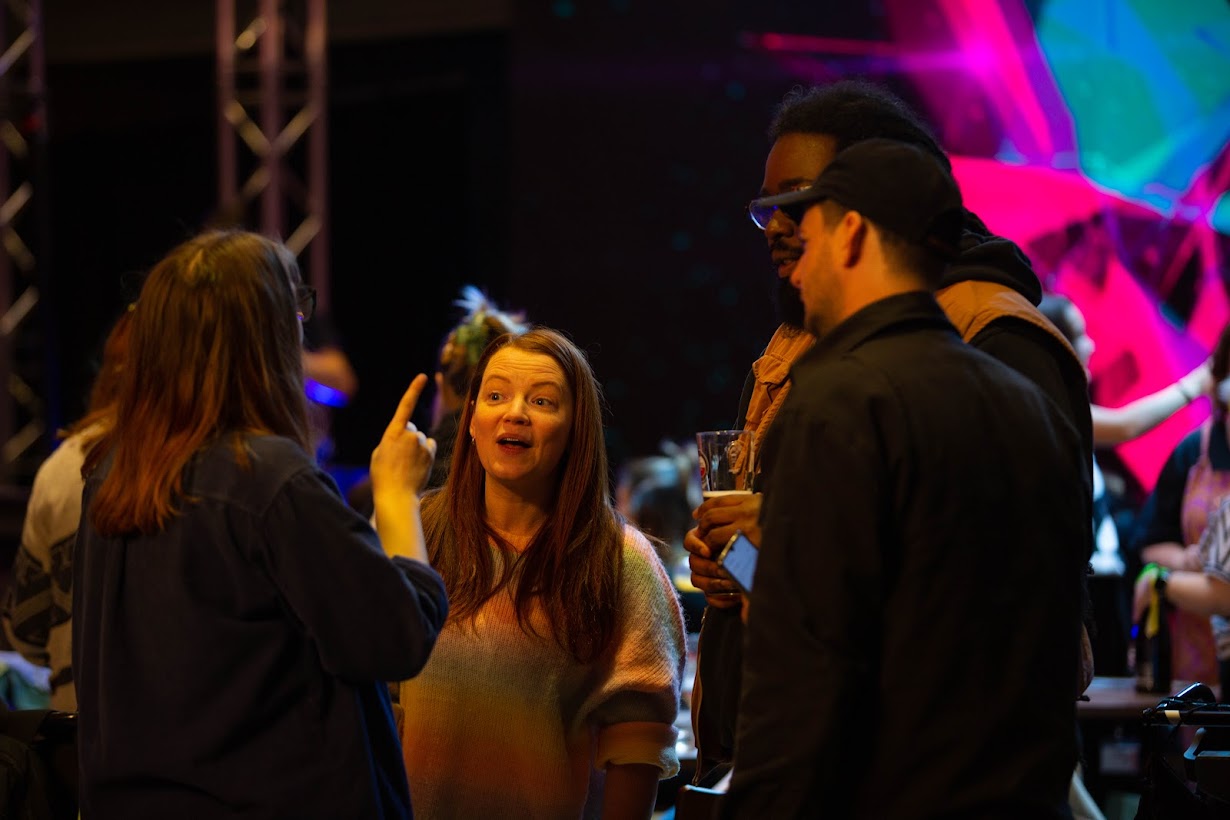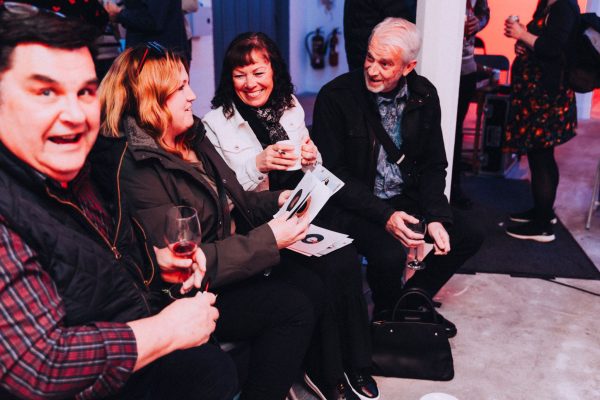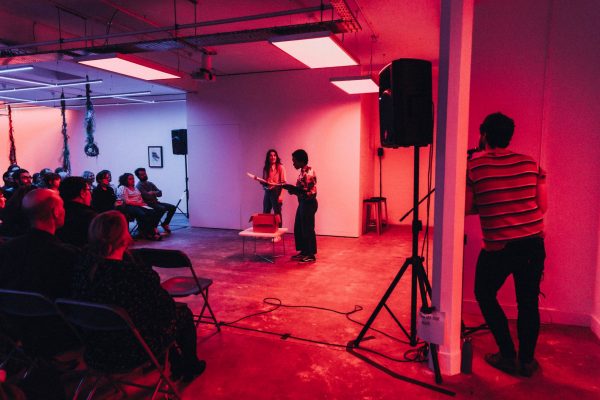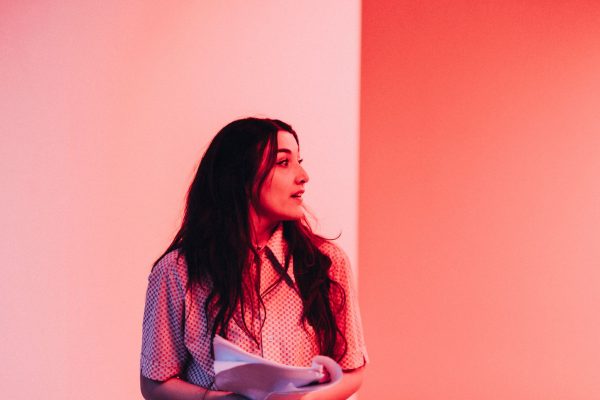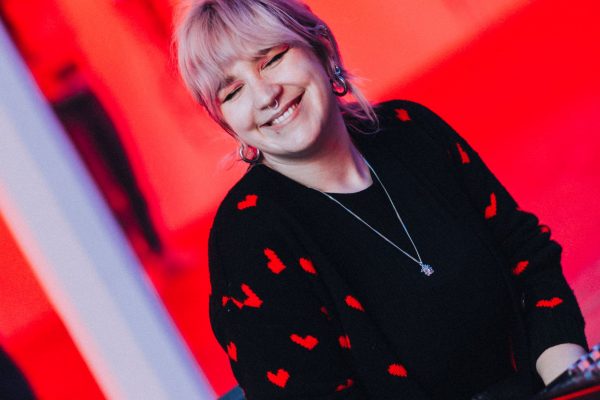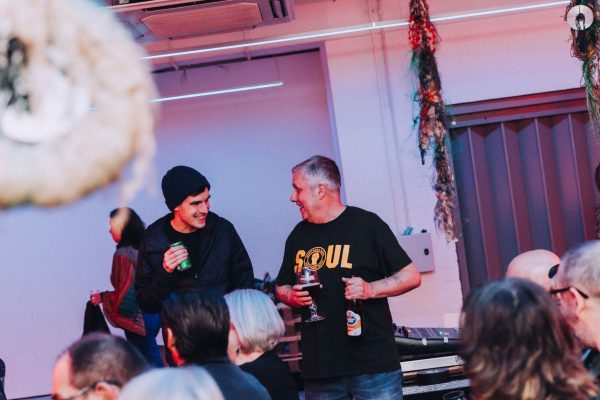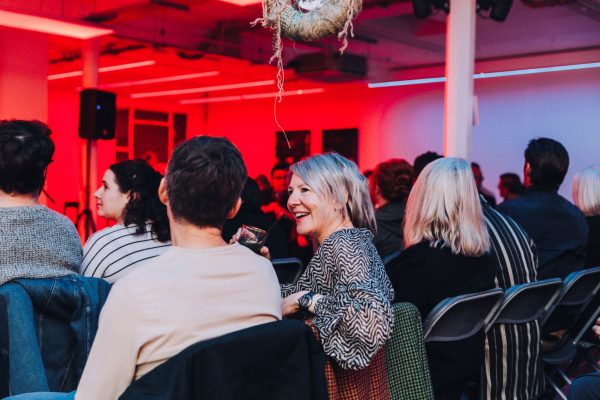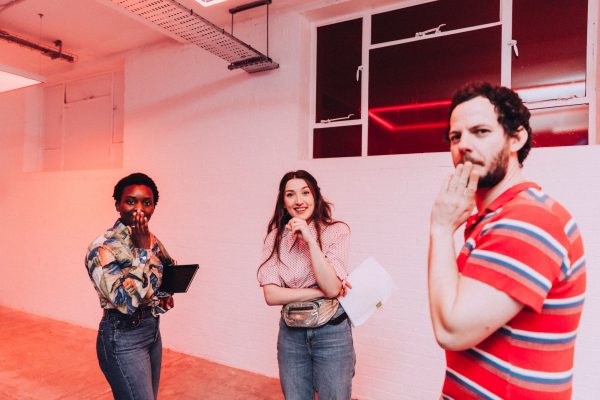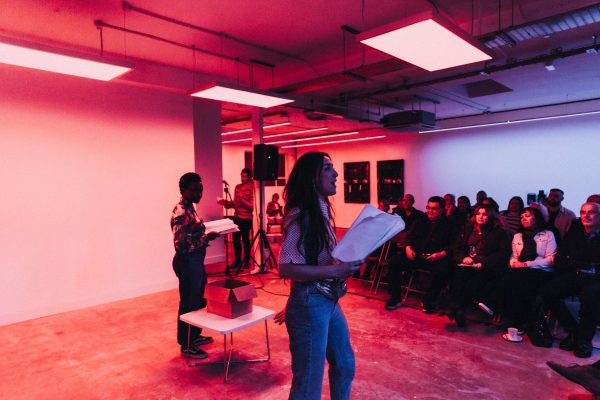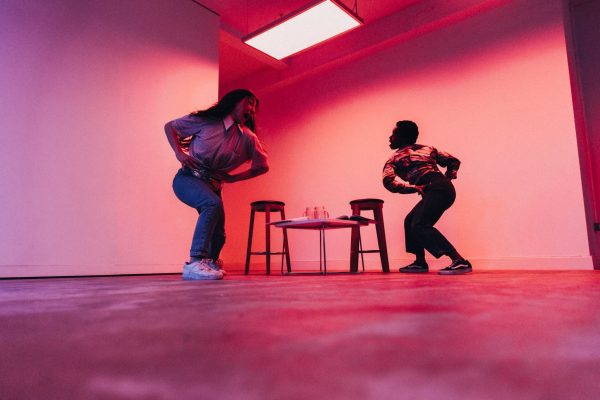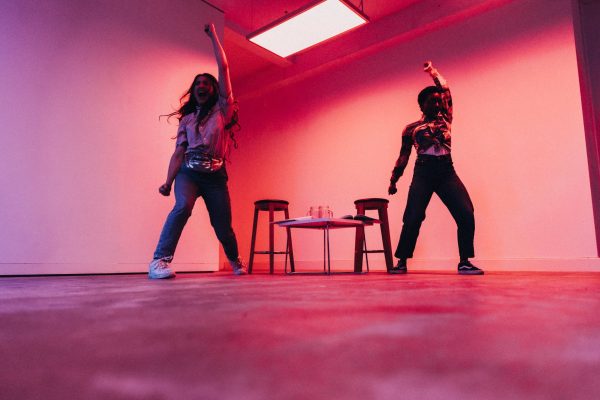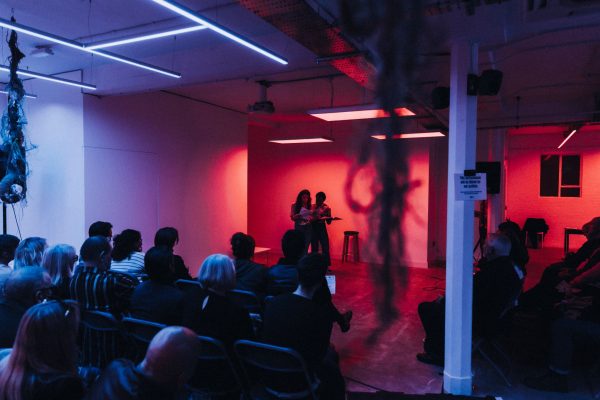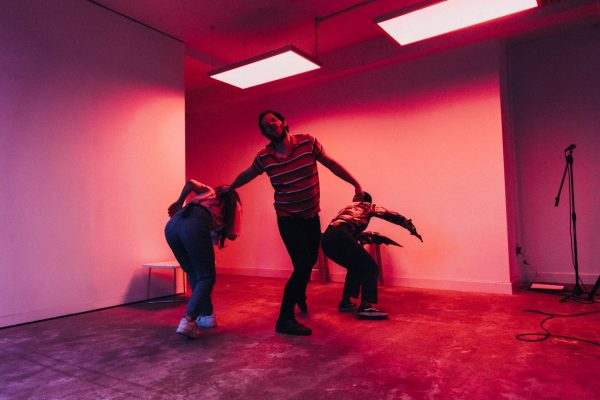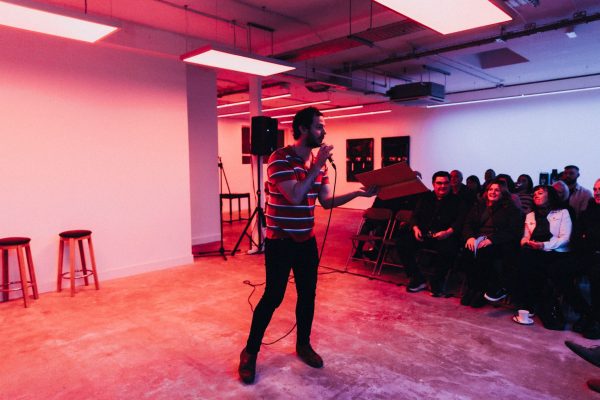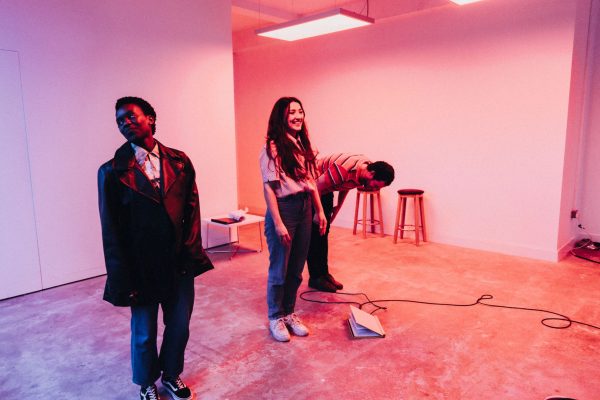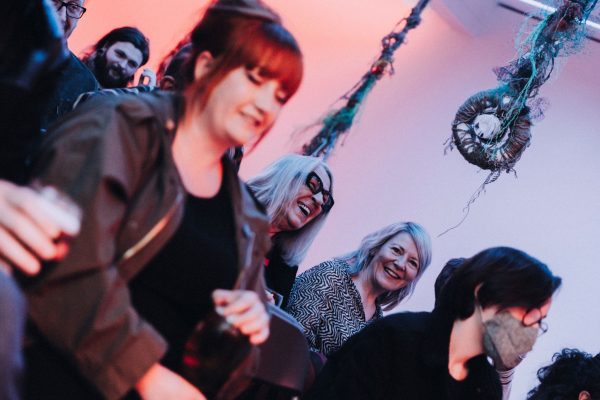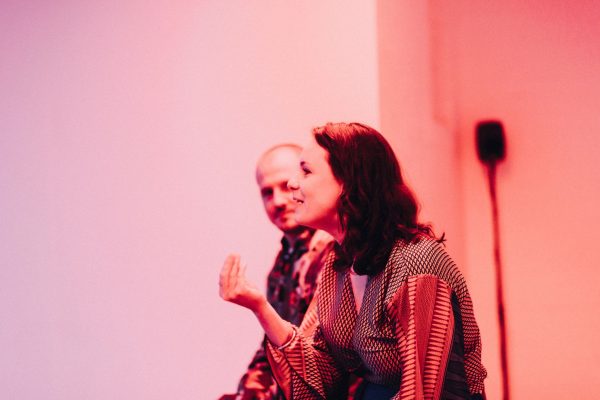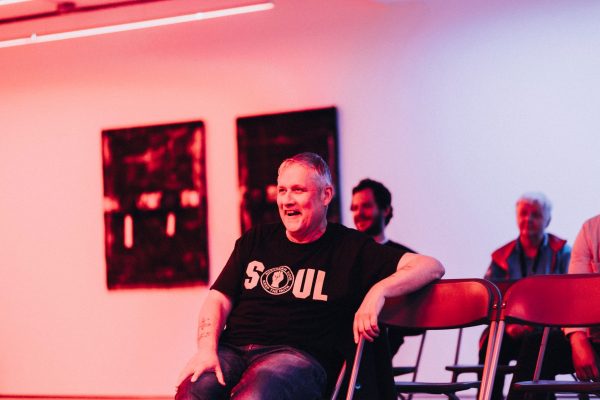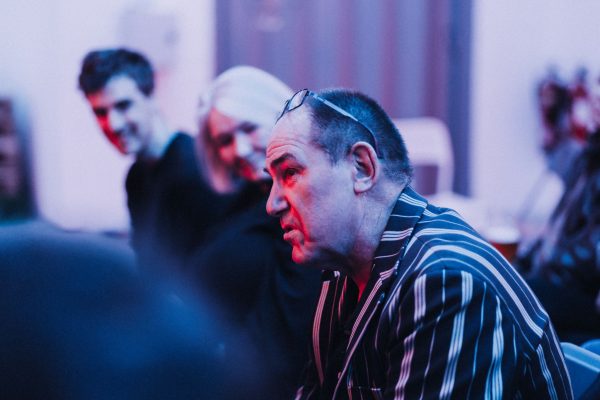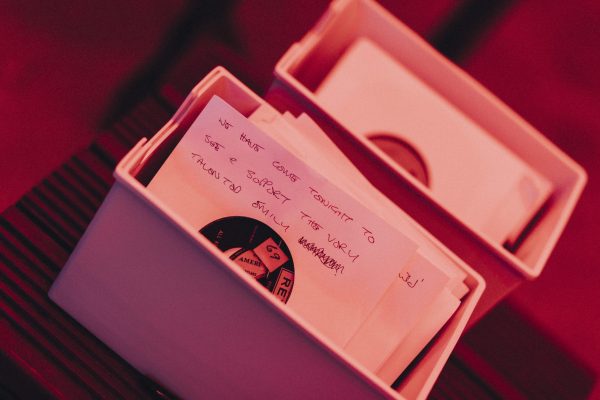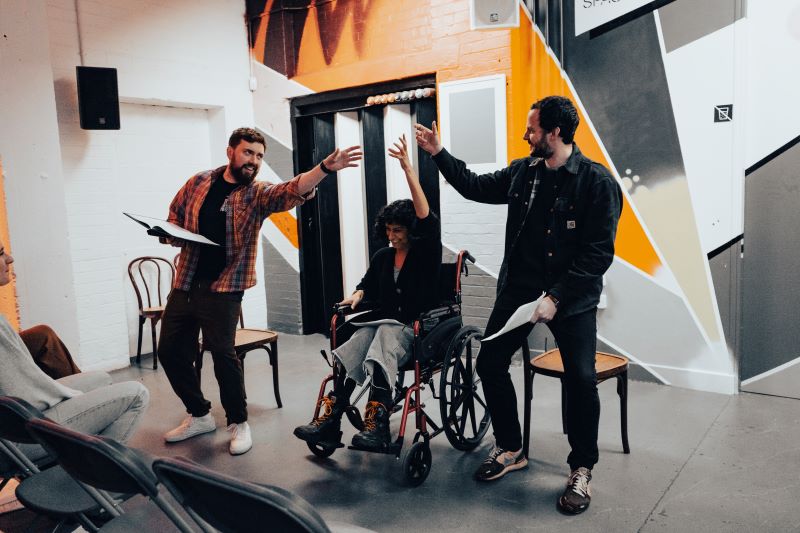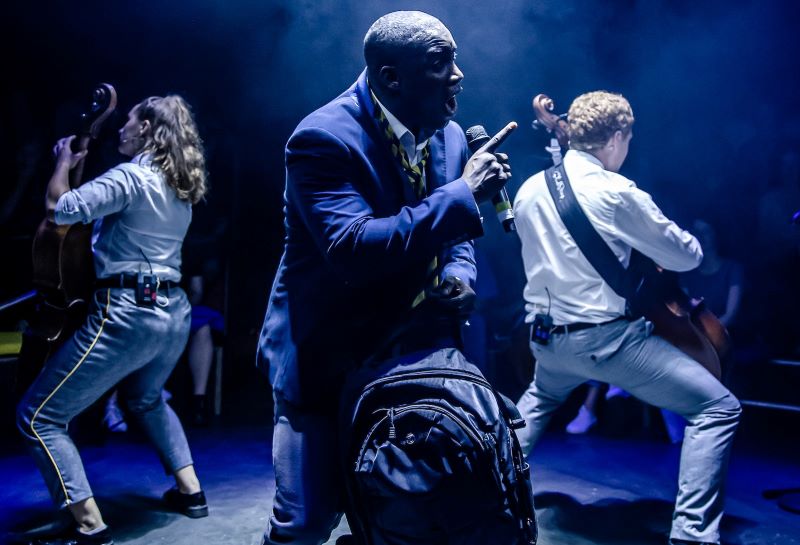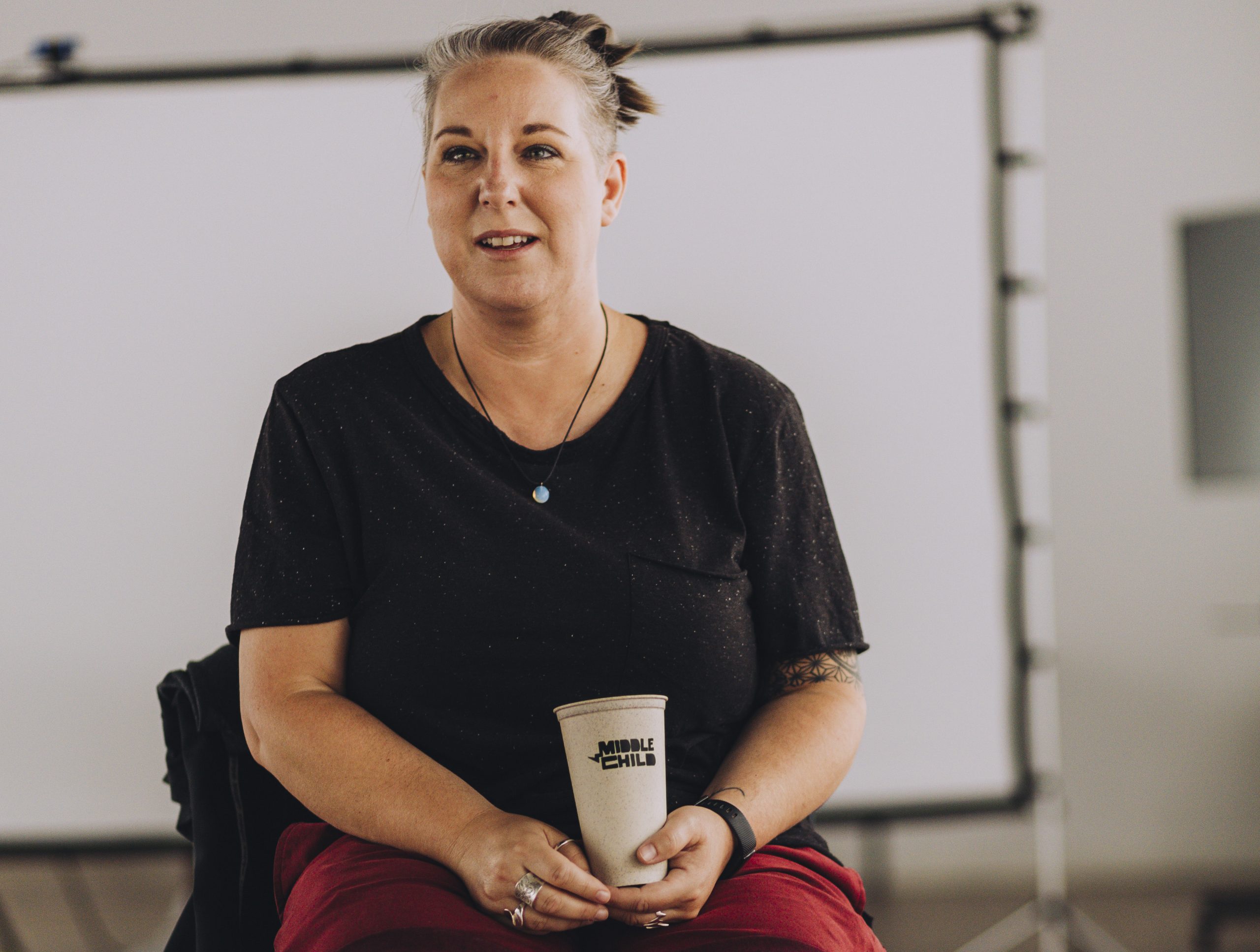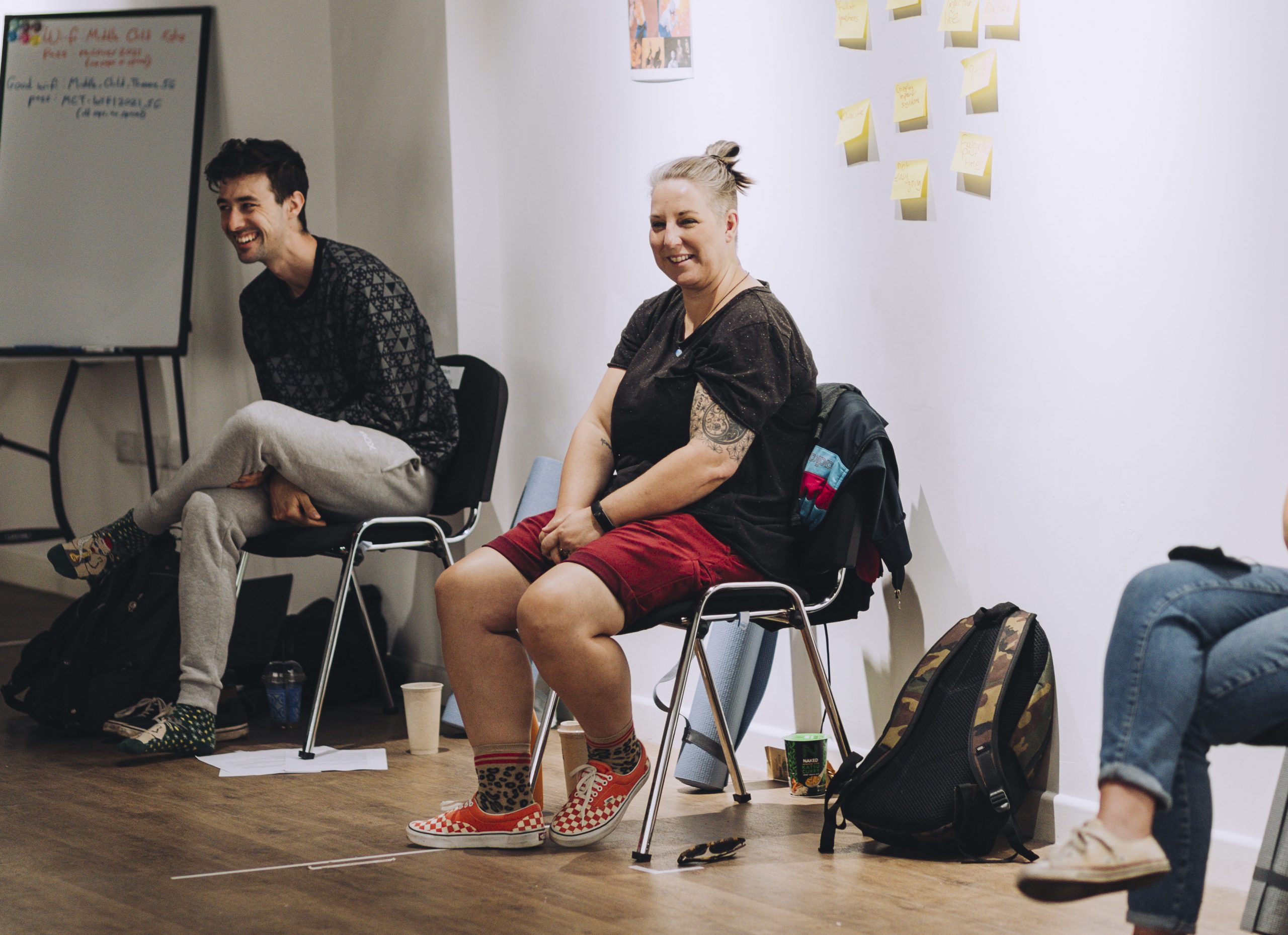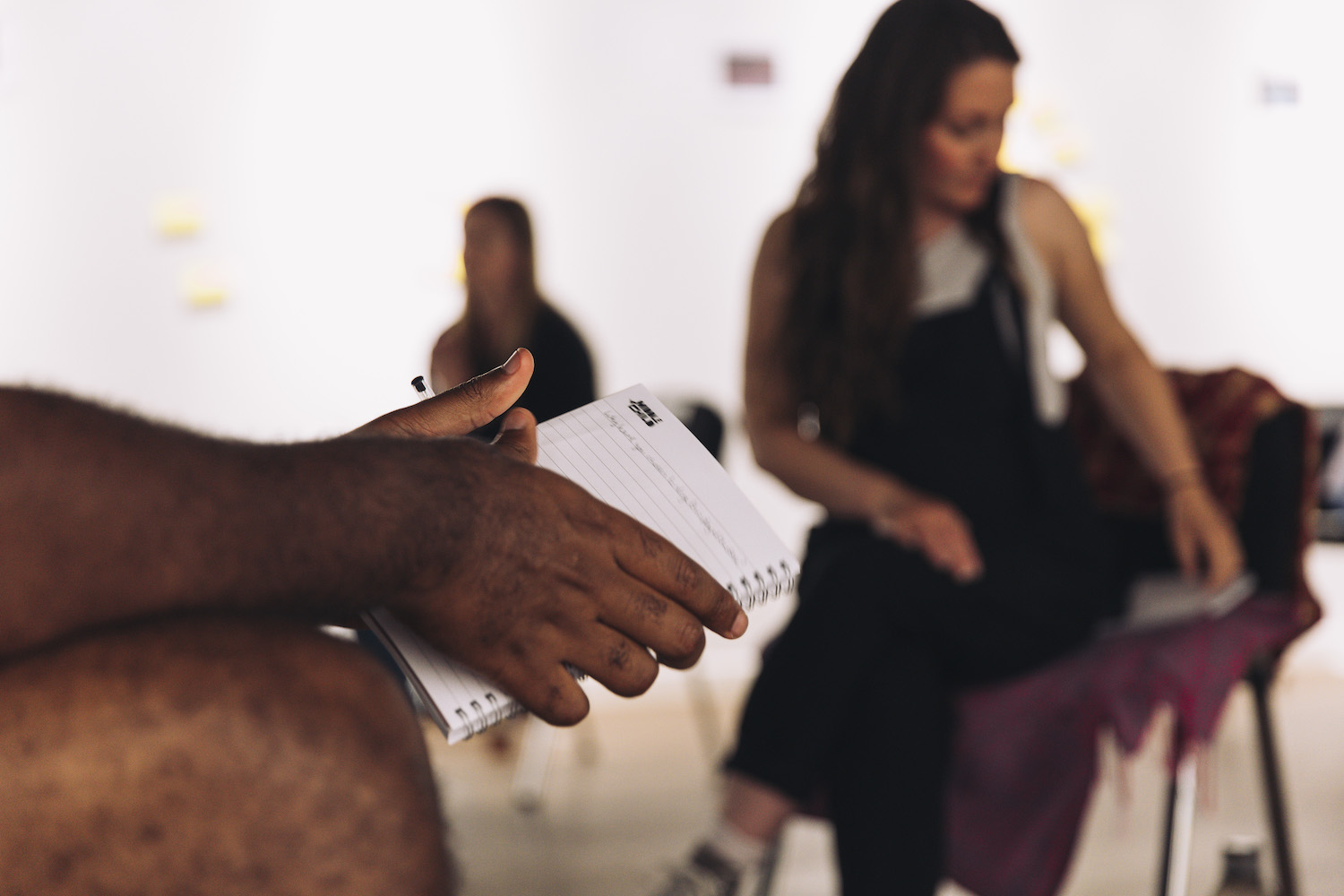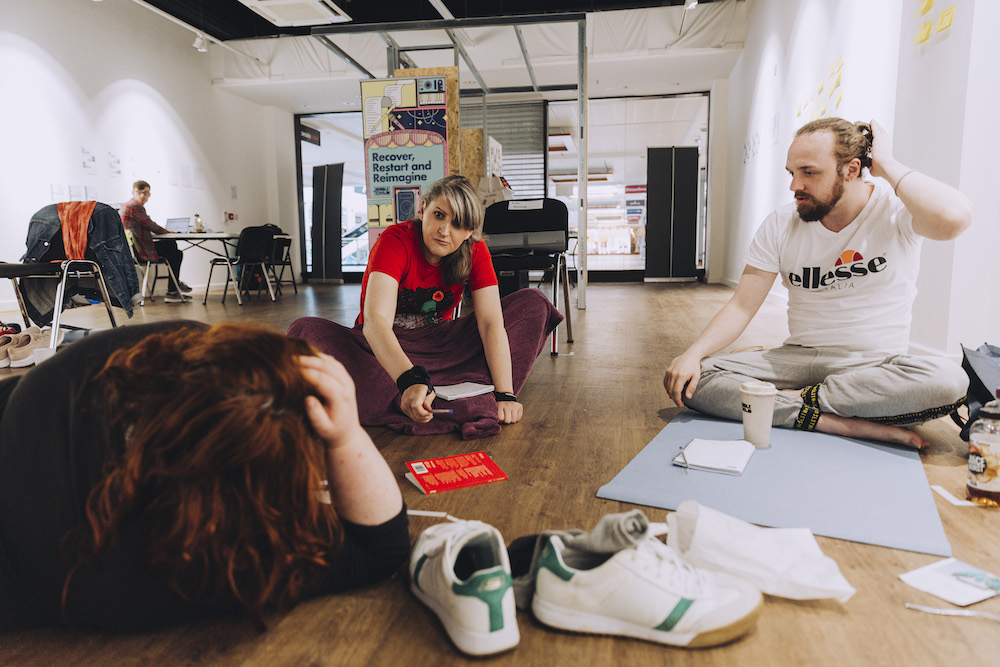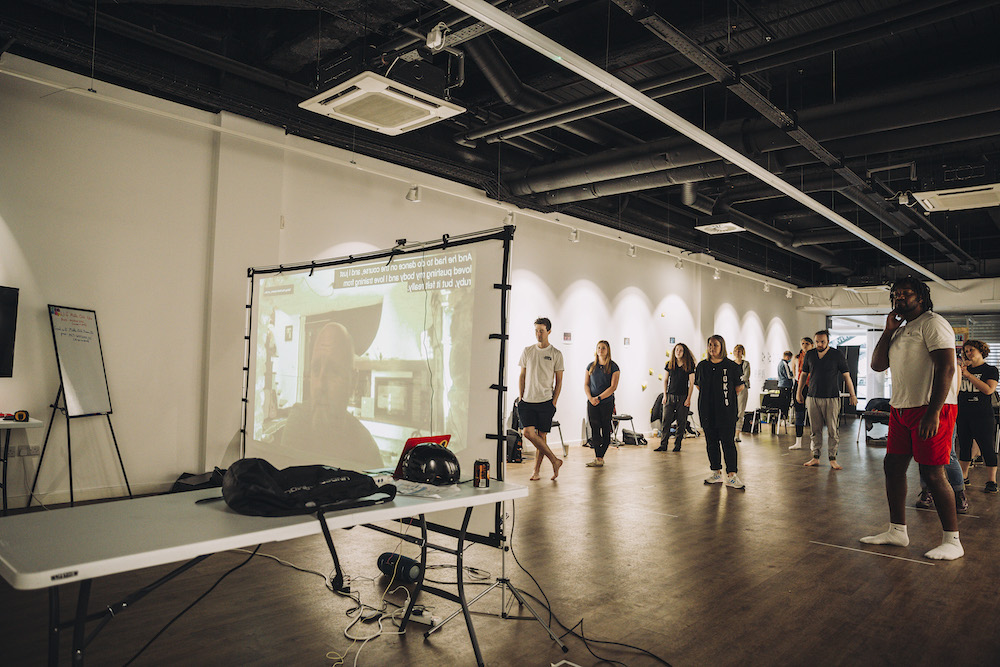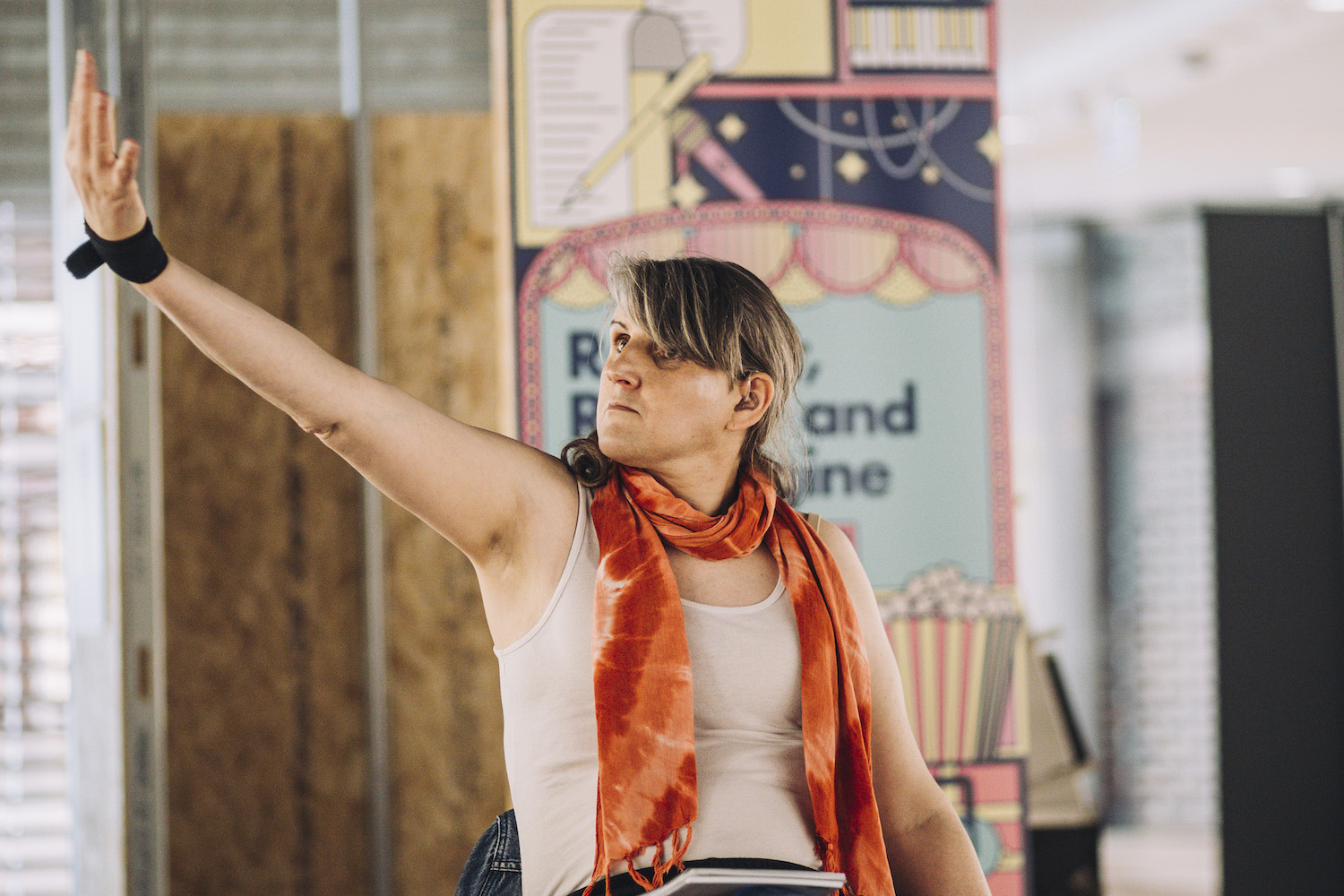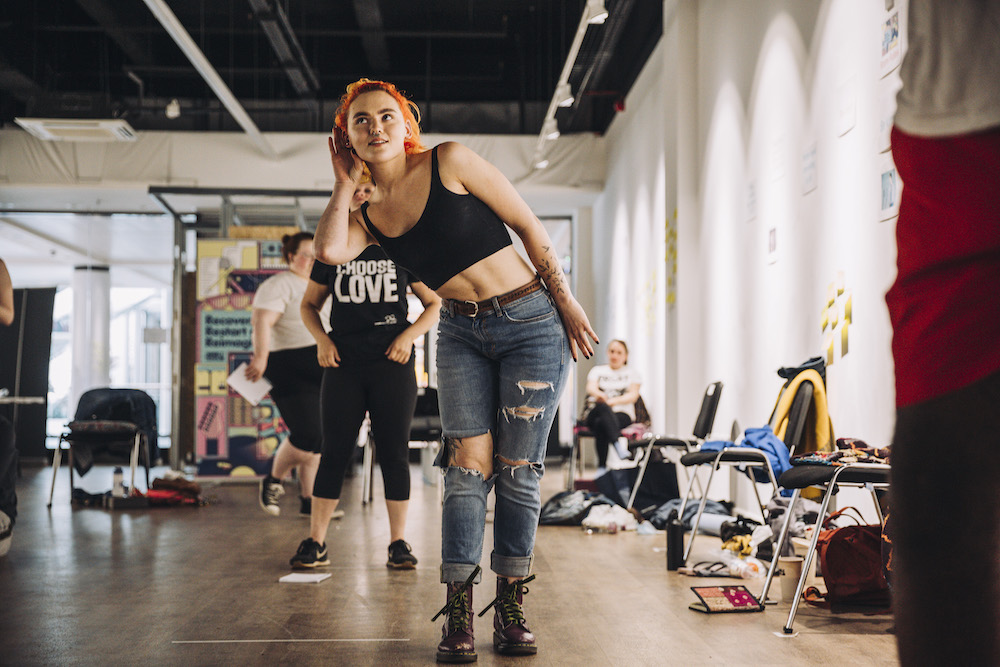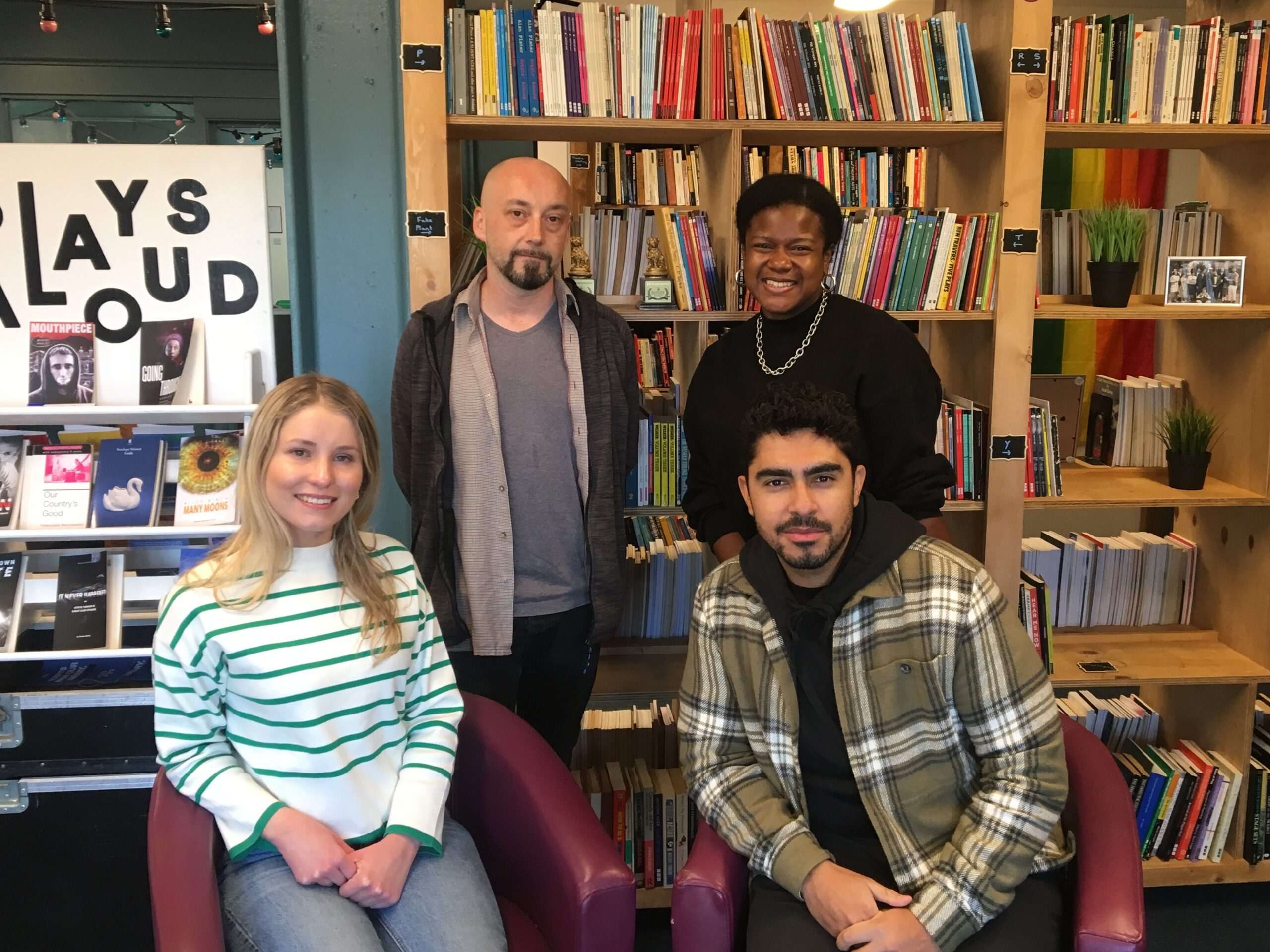
Earlier this month our Concrete Retreat writer residency returned for its first in-person gathering since covid-19 upended our artistic programme in 2020.
Joe Hakim, Natasha Brown, John Booker and Lydia Marchant joined us at our rehearsal space and theatre library in Hull for four days to explore new ideas, without the pressure of having to create any actual work.
Below, John and Lydia share their reflections on their time in Hull, developing new ideas from scratch, discovering chip spice and visiting The Deep.

Clockwise, from top left: Joe Hakim, Natasha Brown, John Booker and Lydia Marchant
John Booker
Having never been on a retreat before, I wasn’t sure what to expect. I tried to approach the week with an open mind. I wanted to end the retreat with some developed ideas on work I’d like to write in the future. I had a long list of thoughts, ideas, and musings, but I wanted to turn them into something concrete.
It took me a day or two to get my head out of regular work annd other projects and into the room. A lot of the first day was taken up fighting the urge not to spend the time replying to emails for that small serotonin hit.
Morning walks through Hull, chatting with either Joe, Lydia, or Tash, felt like a perfect start to the day and got me thinking creatively from the off. Check-ins on arrival helped bring clarity to how I would structure my day and a check-out to wrap the day would help to track my progress.
Having artistic director Paul and literary manager Matt on hand to ask questions and get dramaturgical support made a huge impact on my work. With their help I was able to sort my ideas, organise my thoughts and I left with a new creative outlook. Ideally, I would have taken them back home with me, but unfortunately, I couldn’t fit them in my suitcase. Instead, I had to make do with a shaker of Hull’s famous Chip Spice. If you haven’t tried it, you really should.
I had a chance to work out what’s important to me as a creative, why I do it and where my dislike of Paddington Bear comes from. Sometimes the process of creating can feel lonely and like you’re just screaming into an empty void, hoping someone will respond. I was lucky enough to share the space with three talented artists, who helped to create a comfortable and relaxed environment, where ideas and conversation could flourish. Having the chance to discuss different topics, problem solve and vent felt like the perfect relief.
After reflecting on the week, it showed me how important it is to stop and think. How rare it is for a person to just be allowed to exist and think, rather than have the weight of expectation on their shoulders. In an industry going a million miles an hour, with constant deadlines and pressure, this couldn’t have come soon enough, and I didn’t know how much I needed it until I was there. The only thing that could have improved the process would be more time. Having felt so at home, I had to fight the temptation not to bring my pillow and stay for another week.
Lydia Marchant
Early on in the Concrete Retreat week, we were asked to think about what did well as writers and what we felt we struggled with. For me, without doubt, one of the big things I struggle with is coming up with ideas. It feels like we’re expected to sit on ten brilliant ideas we can pitch at any moment, when it can take me a year to come up with one.
But, during the Concrete Retreat, there was no pressure to come up with or pitch ideas. In fact, there was no pressure to do anything. In the mornings we kicked off with a walk-and-talk conversation, with prompts ranging from “How does where you’re from influence your writing?” to “What does success look like for you?”
After the group discussion, the time was ours to do whatever we wanted – and I mean whatever we wanted. I read plays from Middle Child’s incredible library, had research chats, made spider diagrams and went to The Deep – research, I swear! For whenever we got stuck, Paul and Matt also gave us insanely useful folders full of writing prompts.
In this environment, which was so creative but without pressure, I found, for the first time in months, that nuggets of two or three ideas started to form. Sometimes in the room; sometimes at 2am when I was trying to get to sleep. Most of them are just bullet points in the notes section of my phone but, for one of them, I managed to come up with a two page treatment.
On the last day, I took this treatment to Matt to chat over. Because I’m so used to pushing things forward to meet tight deadlines, I was really hung up on what the story structure could be, but Matt pulled me back into thinking about what the story I wanted to tell was, really interrogating my central dramatic question. This really deepened the characters and a much richer story began to emerge from there.
If we want to pay bills working in the arts, we have to be working on loads of things at once. We never get time to just pause and think. Or certainly we never get paid to pause and think. Until Concrete Retreat, I didn’t realise how much I desperately needed that and I’m so grateful to Middle Child for giving me the opportunity to hit ‘creative refresh.’
